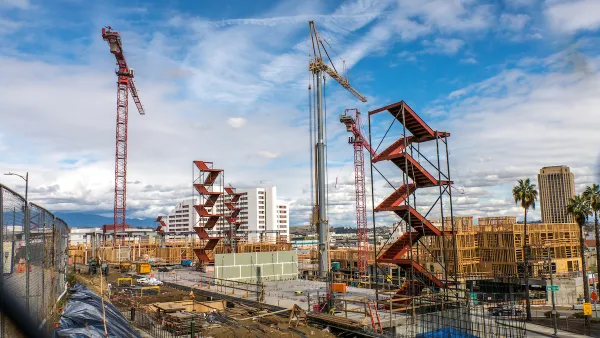A proposal to dissolve the groups has led to a debate about their purpose and who really benefits from them.

Gordon R. Friedman reports that a proposal to eliminate the almost 100 neighborhood associations in Portland, Oregon, from the city code has revealed divides in the city:
Neighborhood activists view themselves as representatives of grassroots Portlanders and the distinctive parts of town they inhabit. Detractors see the associations as entrenched, overly powerful voices for homeowners, who tend to be older, white and opposed to housing density, homeless shelters and other development helpful to a growing city’s health.
Friedman says how exactly the changes would take effect are not entirely clear. However, the associations would lose the special powers that give them a voice on city government actions, including zoning decisions. But activists say that the neighborhood associations focus largely on the everyday needs of residents and the transparency of civic government would be lost without them.
Critics contend that the neighborhood associations do not represent all residents, and too often they have blocked or delayed development. "Housing and renter advocates have an ally in [Chloe] Eudaly [of Office of Community & Civic Life], who said the city government needs a new paradigm for engaging residents," writes Friedman.
FULL STORY: Emotions flare as Portland, long friendly to neighborhoods, weighs gutting their powers

National Parks Layoffs Will Cause Communities to Lose Billions
Thousands of essential park workers were laid off this week, just before the busy spring break season.

Retro-silient?: America’s First “Eco-burb,” The Woodlands Turns 50
A master-planned community north of Houston offers lessons on green infrastructure and resilient design, but falls short of its founder’s lofty affordability and walkability goals.

Delivering for America Plan Will Downgrade Mail Service in at Least 49.5 Percent of Zip Codes
Republican and Democrat lawmakers criticize the plan for its disproportionate negative impact on rural communities.

Test News Post 1
This is a summary

Test News Headline 46
Test for the image on the front page.

Balancing Bombs and Butterflies: How the National Guard Protects a Rare Species
The National Guard at Fort Indiantown Gap uses GIS technology and land management strategies to balance military training with conservation efforts, ensuring the survival of the rare eastern regal fritillary butterfly.
Urban Design for Planners 1: Software Tools
This six-course series explores essential urban design concepts using open source software and equips planners with the tools they need to participate fully in the urban design process.
Planning for Universal Design
Learn the tools for implementing Universal Design in planning regulations.
EMC Planning Group, Inc.
Planetizen
Planetizen
Mpact (formerly Rail~Volution)
Great Falls Development Authority, Inc.
HUDs Office of Policy Development and Research
NYU Wagner Graduate School of Public Service





























